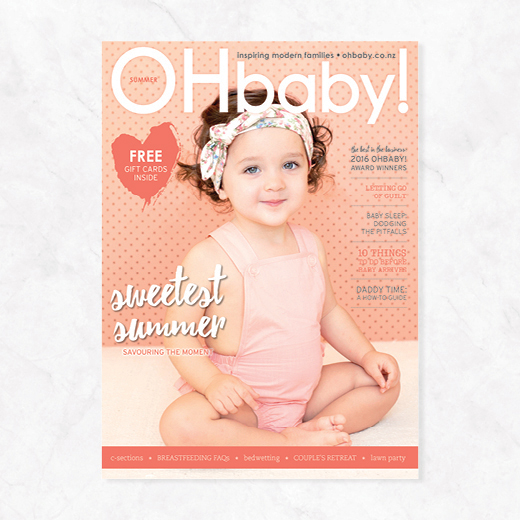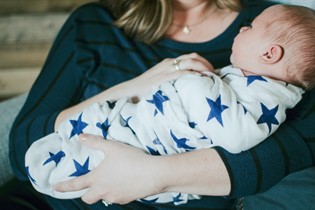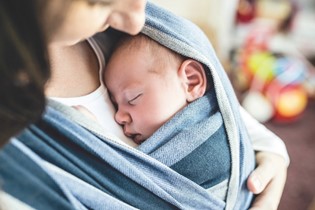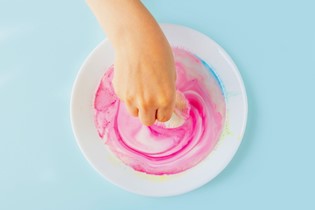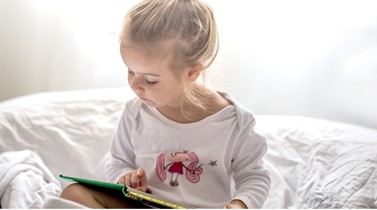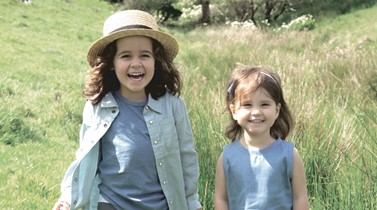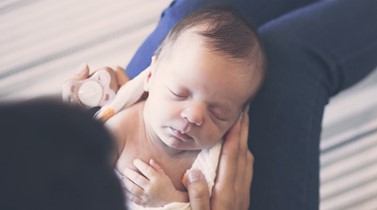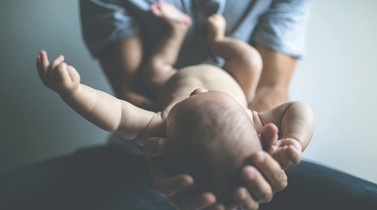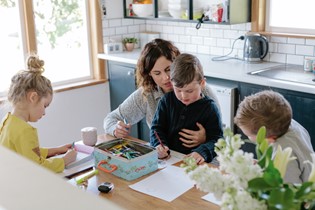Not guilty: why mummy guilt is so destructive
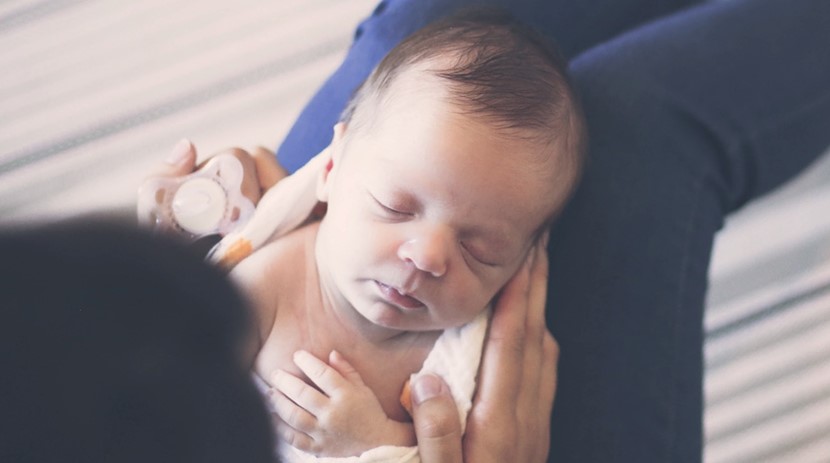
Why does motherhood so often come with a side-order of guilt? Hannah Davison talks practically about this problematic emotion.
At 11:37pm, 1st December 2012, I was handed my infant son. He weighed 3525 grams. At 11:38pm, I was handed my mothers' guilt. It weighed a tonne. I became closely acquainted with this strange new emotion, which came in all sorts of shapes and sizes. First came childbirth guilt, breastfeeding guilt and joy-of-motherhood guilt. These later morphed into food guilt, screen-time guilt and childcare guilt, among other equally irrational variations. Feelings of guilt seem to go hand-in-hand with motherhood, but why does it occur, what purpose does it serve and is there anything we can do to manage it?
It is reassuring to know that this phenomenon cannot be blamed entirely on our sleep-deprived psychology. During childbirth we are physiologically put on the back foot. “In pregnancy, reproductive hormone levels in a woman’s body are about 20 to 30 times greater than normal. At delivery, hormone levels drop abruptly. The sudden drop in oestrogen, progesterone and other hormones can trigger moodiness and guilt” says Dr Natalie Flynn, a Clinical Psychologist at Emotional Health Services in Auckland.
At this point, our defences are lowered, allowing other social stressors to come charging through the castle gates. Guilt in its nature has an insatiable appetite for discontent and manifests via a number of different methods. Dr Flynn often explores five themes during therapy: “Women internalise what we call Myths of Motherhood, which include a glowing pregnancy, straightforward birth, instant bonding and an increase in pleasure post birth. When a woman has these expectations and reality doesn’t match, then a sense of failure and guilt can set in”.
Dr Flynn has further explanations for mother-guilt: “There is simply so much information available, much of which is contradictory and more speculation than fact. This leaves women in a ‘damned if they do, damned if they don’t’ situation. For many people, parenting is the most important task at hand which means that many can become fevered and polarised about their position. In other words, when a mother looks up parts of her parenting style on the internet she is sure to be met with strong opposition and wonder if she is doing the right thing.”.
It seems everyone offline has a theory on parenting too. “Family and even strangers can perpetuate mother’s guilt; for some reason, many people think that they have a right to tell women what they should be doing once they see them with a baby in their arms” warns Dr Flynn.
“Most, if not all, women present part of the story but not the whole story. They tend to gloss over the down side of motherhood. Sometimes this is out of respect for their children, but also for fear others will judge them poorly.”
Checking in
Left unchecked, guilt can be a destructive emotion, but there is an evolutionary reason that it occurs. Parents have an innate desire to raise healthy, prospering children for the survival and success of our species. Natural feelings of guilt can signal that we may be doing something that doesn’t agree with our values and ideals and causes us to reflect on our choices. “I encourage people to look at emotions as ‘just emotions’ rather than negative or positive” says Dr Flynn. However, sometimes guilt can take hold, becoming more than a social indicator and developing into stronger feelings of anxiety or depression.
We can be our own worst critics, consumed by internal dialogue which seeks to question and justify our every decision. When this is combined with fear of being judged, it can have extremely detrimental effects on ourselves and those around us. “Guilt that interferes with general functioning or enjoyment can be a sign of depression and anxiety if other symptoms are also being experienced. One of the questions that should be explored when assessing for any depressive disorder should be whether there is excessive or inappropriate guilt or self-blame” says Dr Flynn.
You’re good enough
Sometimes the reasons we feel guilty can be illogical and unreasonable given the demands of the lives we live. The reality is it’s impossible to make the most desirable choice for our children all of the time, we often have to make compromises. We’ll always be faced with actual limitations which affect our decision making. As this happens, we have to prioritise our choices and take the next best possible option. Dr Flynn recommends that mothers aim for being a “good enough mother” rather than a perfect mother, as perfection does not exist.
We can only do our best. If this means we take the second best option rather than the perceived ideal (but impossible) option, then we need to accept that, own the decision, then let go of any guilt that has come along for the ride. The real challenge is learning how to process our feelings of guilt. This may be as much of a cultural shift as it is an individual one.
In our competitive culture, we can feel the pressure to make an outward show of coping when we really need extra support during early stages of motherhood. Fearing the judgement of others can encourage those who already feel vulnerable to further withdraw and become isolated. Some of the closest contact new mothers have is often other new mothers. Culturally, we could benefit from recognising that expressing our vulnerabilities is a greater demonstration of strength than the ‘stiff upper lip’ mentality. If we create an atmosphere of support and acceptance towards one another, we can then safely share our struggles and seek support without fear of being judged.
Perspective on purpose
Feeling a strong desire to make the best choices for your family is a positive thing. The purpose guilt serves might help us here, but it is also important to treat ourselves with the same compassion we’d treat someone else in a similar position. We may need to ask if we are placing unreasonable or unrealistic expectations on ourselves, or if we would begrudge another mother for making the same choices. It can be helpful to step back and treat your own situation as if you were another mother, to gain some perspective and objectivity.
If you do feel your guilt is spiralling out of control and becoming stronger feelings of anxiety or depression, your best option is to reach out and seek help. “If your guilt is impacting on your life or your relationship with your baby or child, a GP, midwife or Plunket nurse can be a good first port of call. They might refer you to a publicly funded service, such as Maternal Mental Health, or to available private options” says Dr Flynn.
We talk about mothers' guilt a great deal. To some extent, all that does is reaffirm its presence. The last thing mothers need is judgement, whether that be from others or from ourselves. There is something else specific to mothers that we are gifted upon the birth of our children, and it is something we don’t talk about enough – mothers' instinct. “Remember that, for most women, going with your instinct is more important than anything that you read” says Dr Flynn.
Perhaps it is time we challenged ourselves to stop looking inward to only finding judgement, and instead start looking inward for guidance and the innate instinct that resides there.
Hannah Davison recently returned to freelance writing after a small hiatus which saw the arrival of two young children and a dairy farm conversion. Hannah lives with her family in North Canterbury.

AS FEATURED IN ISSUE 36 OF OHbaby! MAGAZINE. CHECK OUT OTHER ARTICLES IN THIS ISSUE BELOW
